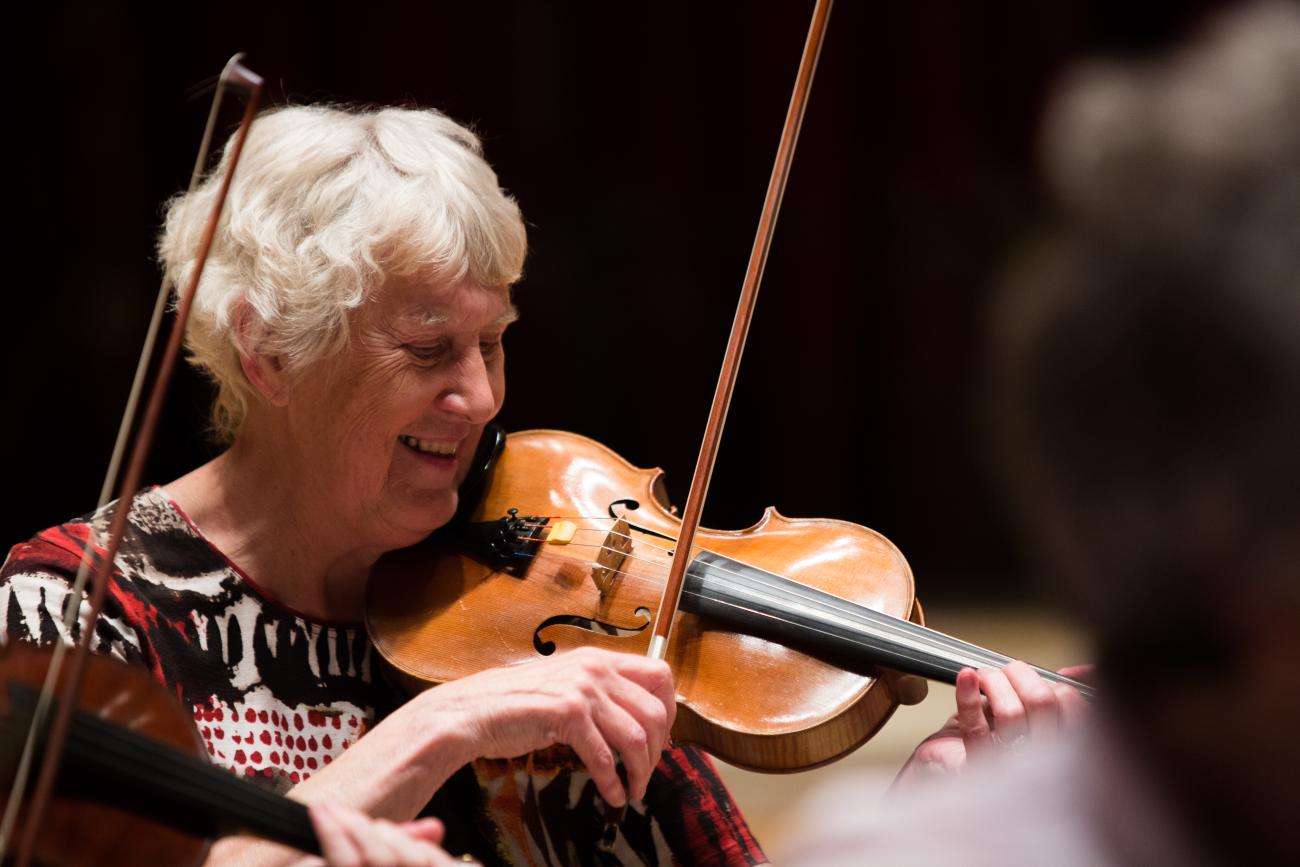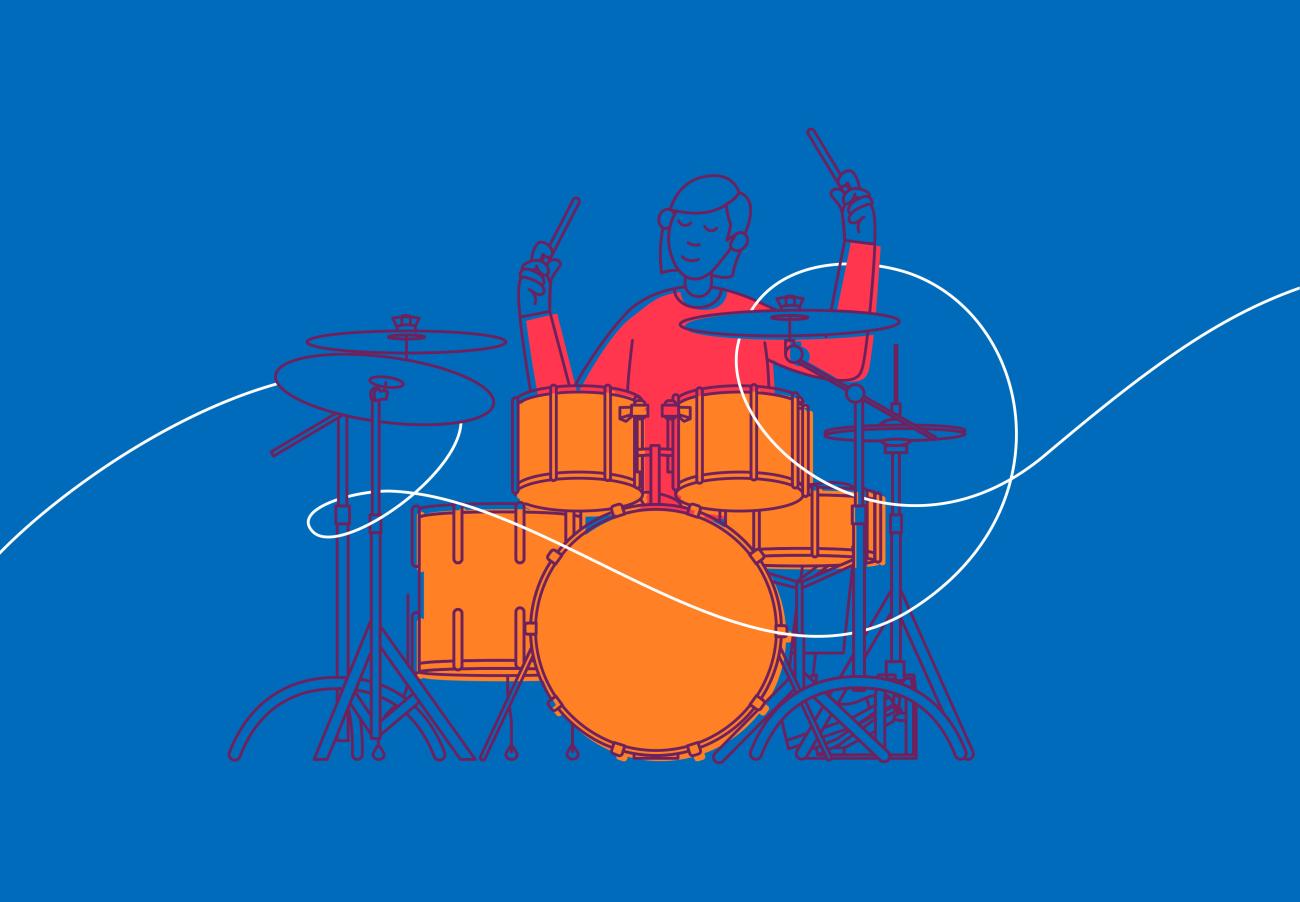Exam preparation
- If you need an accompanist, make sure this is organised well in advance of the exam with time for rehearsing.
- Aim to arrive in the waiting room around 10 minutes before your exam is due to start. Last-minute panics won't help your playing or singing!
- Use the time before your exam to get your music and instrument ready – you can warm up silently by moving your fingers or blowing through your instrument.
- Feeling nervous before an exam is natural. For some helpful advice, read our tips for coping with nerves at the bottom of this page.
- Make sure you’re comfortable before you begin. If the stool or music stand is the wrong height, don’t be afraid to adjust it or ask the examiner for help.
- It’s fine to warm up at the start of the exam by playing a scale or a few bars of a piece.
- You can choose to do your exam in any order. Just let the steward or examiner know.
- Try to keep going even if you make a mistake – it probably won’t be as disastrous as you think.
- Don't worry about pauses between your pieces – the examiner will be writing and will tell you when to start your next piece.
- Your examiner may stop you during a longer piece/song. This is nothing to worry about, it just means that they have heard enough to make their assessment.
- Remember, the examiner is on your side and is looking forward to hearing you perform!
- Check the information on our online Music Theory guidance page.
- Carry out a system check for your device.
- Choose a quiet room where you won’t be distracted.
- Check there are no disallowed items are on show, such as a piano keyboard, books or anything showing notation.
- Go to the toilet and have everything you need before you begin, such as blank paper, pens or pencils and your photo ID.
- There are four room scans to complete: 360°, left to right; floor to ceiling; self scan for accessories; and desk surface scan.
- Once you’ve started the exam, you can do the questions in any order as well as changing the colour or size of the exam.
- Don’t worry if you make a mistake or aren’t sure of an answer. You can make changes or ‘flag’ a question as a reminder to go back and check your work before you submit your answers.
- Keep an eye on the exam timer in the top right-hand corner of the screen. This counts down your remaining time.
- Tell the proctor (online invigilator) if you need to leave the room to go to the toilet. Talk clearly to the camera as they will be able to hear this when they review the exam recording.
- Check your answers once you have finished and remember to destroy any paper in front of the camera before you click the ‘end test’ button.
- Arrive about 10 minutes before the exam is due to start so that you have a chance to get settled.
- Make sure you have pens, pencils, a ruler, a rubber and a pencil sharpener.
- Underline any sections of the exam paper which you feel are important.
- You will be given a blank piece of manuscript paper to use during the exam – you might find it helpful to draw a keyboard.
- You can complete the paper in any order. Do the parts you know first and go back to the more difficult sections.
- Keep an eye on the time so that you know how long you have left. If you have done some practice papers you will know how long to allow yourself for each question.
- Don’t worry if you make a mistake – you can rub or cross it out and write the correct answer next to it.
- Try to be as neat as you can – your work needs to clear enough for the examiner to understand it.
- Don’t look around and worry about what everyone else is doing – concentrate on your own paper.
- Check your work once you have completed the paper. If you have finished you can leave the room any time after 40 minutes, but make sure you have done everything as well as you can.

- Electronic Keyboard – remember your mark form choices. Make sure you don’t mark ‘tone’ or ‘intonation’ and use the appropriate grooves.
- No piano? No problem – during the Solo, your candidates can have accompaniment (live or CD backing track) or play unaccompanied. It doesn’t need to be a piano accompaniment. Any instrument other than the instrument the candidate is playing, is fine.
- No players? No problem – if you’re struggling to find players for your ensemble, as the teacher-assessor you can play one of the parts.
- Filling in your report form – don’t put a cross in every line. Just cross the boxes to show particularly significant aspects of the performance.
- Arrange and transpose – you can arrange or transpose lines, apart from the line being assessed, to suit the group you’re working with. This includes transposing parts for any instrument. For example, if you have a violinist, trumpeter and bassoon player in the same group, and your violin student wants to take a Music Medal, you can transpose and arrange the lines to be played by the trumpet and bassoon players.
It’s natural to feel nervous! Some candidates will feel nervous before or during their exam and our stewards and examiners understand this.
Pre-performance nerves are extremely common, even among professional performers. Most musicians will have experienced a dry mouth, sweaty hands, the shakes or butterflies in the stomach, all of which can be uncomfortable and lead you to feel less in control.
With experience, many people learn how to deal with nerves and taking exams can help with this by giving you the opportunity to play under pressure for a short time. Additionally, these feelings and sense of alertness can actually help your performance – when your heart beats faster, it makes more oxygen available to your brain and body.
Here are some top tips to help you cope with performance anxiety and turn feelings of nervousness to your advantage.


